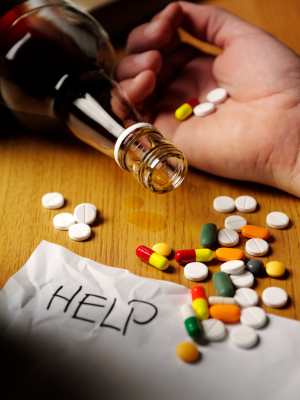Drug addiction continues to be a major challenge for many countries around the world. The National Institute on Drug Abuse (NIDA) revealed in its 2012 Monitoring the Future Survey that use of illegal drugs among teens went up in recent years while alcohol and cigarette use dropped.

The survey which covered more than 45, 400 students in the 8th, 10th and 12th grades from 1992 to 2012 showed that marijuana use was on top and highest among the 12th graders. Other drugs used were powder cocaine, crack, methamphetamine and heroin. Prescription drugs commonly abused were Adderall, Vicodin, cold medicines and tranquilizers.
But while this alarming situation exists, there’s help on hand. Parents who are helpless in battling this issue with their children as well as adults having difficulty in overcoming this dangerous habit can seek help from drug rehabilitation centers. There are tens of thousands of them in place worldwide and are committed to reforming users regardless of age and gender.
Choosing the right rehabilitation center is important. Parents and adult users must take the time to learn about the services being offered, the environment in the center and facilities available, the fees involved and the duration of the treatment.
Treatment is normally tailored to an individual’s personality, the type of drug used, his specific problems (medical, psychological, social, vocational and legal) and needs. It also has to be matched according to the person’s age, gender, culture and ethnicity.
Ideally, a three-month treatment is likely to reduce or stop drug use based on research. Longer treatments, however, are most recommended to bring the best results as the recovery process can take a long time.
An effective drug rehabilitation program should include behavioral therapies that address various issues and use of appropriate medications. The therapy can be a one-on-one type, family or group counseling that encourages skills building and other constructive activities. Participation in group therapies and other support programs after treatment is critical as well to prevent any relapse.
The best drug rehabilitation manistee should, therefore, be one that can effectively help an individual stop his use of illicit drugs without relapse and make him or her come out a reformed person who can be useful once more in society.
Use of illicit drugs greatly impacts a person’s mental health. A 2012 study showed that people who were heavy marijuana users in their teens and continued through their adulthood experienced a significant drop in their IQ. Those who were confirmed marijuana dependents had an average 8 points reduced from their IQ between the ages 13 and 38 compared to those who never tried marijuana.
Those who abuse illicit drugs are also at high risk of getting HIV and other sexually transmitted diseases. It should be understood, however, that use of contaminated injection tools does not lead to HIV but rather a person’s risky sexual behavior that results from his lack of proper judgment owing to his drug dependency.
Photo via rehabilitationhq.com
Originally posted on January 18, 2013 @ 3:22 pm